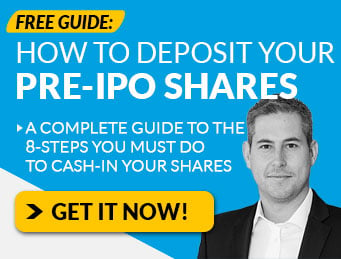Every investor knows they’re supposed to perform their own due diligence before making an investment. But most investors have no idea what investment due diligence actually is, much less what to do to properly investigate and understand the potential risks and rewards hidden inside an exciting private investment opportunity.
On one hand, we all want to avoid the investments that turn out to be scams – like the most recent high-profile collapse of FTX, Theranos, and WeWork – but there’s plenty of legitimate companies seeking to raise capital from private investors that fail for lots of reasons.
In this blog post, we will explore how investment due diligence works and the 5 steps investment banks and institutional investors (e.g. Private Equity and Venture Capital) take when performing due diligence in private market investments.
Key Takeaways:
Understanding Due Diligence: The due diligence process is a critical step in making an investment decision. It involves a comprehensive analysis of the potential investment to understand the risks and rewards.
Challenges for Retail Investors: The typical small balance checkwriter has little to no ability to perform meaningful investment due diligence – either because they lack the necessary skills to do so, or the time/cost to do so would make the investment opportunity uneconomical relative to public market comparables.
Evaluating Private Investment Opportunities: A due diligence checklist in private investments involves examining corporate records, financial records, personnel matters, intellectual property matters, and legal matters. To avoid scams and bad investments, focus on verifying the company’s legal structure, financial statements, intellectual property assets, and any legal disputes or claims.
Role of Intermediaries: Intermediaries like crowdfunding portals play a crucial role in providing information for investment decisions. Understanding how they source and underwrite their deal flow is essential.
Investment Screening: Many investors interested in early-stage investments join angel investor groups or syndication programs where there is some sort of screened deal flow, investment analysis, and group discussion to help potential investors understand the risks/rewards of the investment opportunity.
Why Should You Perform Due Diligence?

Institutional investors make better use of public information to conduct due diligence.
According to former SEC Commissioner Luis A. Aguilar…
A recent academic paper found that newly public companies with the highest levels of institutional investment significantly outperformed those with the lowest levels.
According to the study, institutional investors were not appreciably better than individual investors at picking big winners, but they were much better at avoiding the worst-performing investments.
The interesting thing is how they did it: The authors found little evidence that institutions were able to exploit private information to improve investment returns. Nor did the evidence of that particular study suggest that institutions were able to improve the performance of companies they invest in through active monitoring.
Instead, it seems that these institutional investors succeeded by making better use of the available public information — focusing on fundamentals like operating history, prior earnings, size, and liquidity.
While the investment due diligence process is critical when investing in any asset class, it is especially challenging when it comes to private market deals. Unlike public companies, which have to publish their financial records on a quarterly and annual basis, private companies don’t have the same regulatory constraints.
So how do you, as a small-balance investor perform proper due diligence to avoid “bad” investments?
Why Retail Investors Struggle to Perform Due Diligence
The reality is, as a retail investor, you likely don’t have the time or resources required to build a due diligence report, and instead must rely primarily on:
Whatever information is provided by the intermediary (i.e., whoever introduced you to the deal)
Your own research
So because the vast majority of deals you get access to will be through some sort of promoter, it’s more important for you to understand how they underwrite their deal flow.

What Makes a “Good” Private Investment Opportunity?
Assuming the person or organization providing you with the deal flow is trustworthy, how do you perform successful due diligence on the deals they introduce to you?
When a company decides to raise capital by issuing securities (such as stocks or bonds), an investment bank acts as an underwriter. The underwriter assesses the risk associated with the securities offering, and determines the appropriate pricing, and the terms of the underwriting agreement (UA).
So what do underwriters look at when evaluating a security? While we can’t speak for what other companies do, at Equifund, we look at:
1. Corporate Records

Ensure the company’s legal structure is sound and compliant.
These are all the documents related to the actual entity itself:
Certificate or Articles of Incorporation, as amended to date, including pending amendments or Certificate of Formation or Articles of Formation for LLCs or similar constituent instrument
By-laws for corporation or operating agreement for LLC or equivalent document, as amended to date, including any pending amendments
Capitalization Structure that includes issuance date and price of all corporate securities and a description of any rights attached to preferred shares
2. Financial Due Diligence

Analyze a company’s financial statements.
These are all the documents related to the financial history and key assumptions related to future growth:
Current financial statements (profit and loss, cash flow statement, balance sheet)
Revenue/sales projections and budget
Tax due diligence on latest corporate tax return
Contractual obligations, agreements, and policies
Joint venture, cooperative, franchise, or dealer agreements
3. Personnel Due Diligence

Background checks on the people working at the company.
Anything related to the people working at the target company (or contracted to perform services):
Employment and consulting agreements
Nondisclosure, development, assignment, and noncompete agreements with any employee, consultant, or independent contractor and list of employees who are not parties to such an agreement
Employee benefit plans, programs, or agreements (pension, health, deferred compensation, bonus, profit sharing, and any other benefit plans)
Resumes for all company management personnel
List of all employees of the Company, including a schedule of all salaries, bonuses, fees, commissions, and other benefits
4. Intellectual Property Due Diligence
Anything related to the core advantages the business has in the marketplace:
Schedule of all trademark, copyright, and patent registrations or applications, and related filings.
List of all agreements or understandings with third parties, whether now in effect or terminated, for the design, development, programming, enhancement, or maintenance.
All documents, materials, and correspondence relating to any claims or disputes with respect to any intellectual property rights of the Company or any of its subsidiaries or any third party.
Any opinions of counsel concerning the strength of a patent(s) and how difficult they may be to protect against infringement.

5. Legal Due Diligence
Anything related to current or previous legal issues the company is facing:
Threatened or pending litigation, claims, and proceedings
Consent decrees, settlement agreements, and injunctions
Consents, decrees, judgments, orders, settlement agreements, or other agreements to which the Company is bound requiring or prohibiting any activities
All documents and correspondence relating to any pending litigation, threatened litigation, or disputes which could potentially lead to litigation involving the Company, its executives, its officers, or its directors
(Bonus) Other Business Information
This includes anything else published by the company that is relevant:
Press releases, articles, or promotional materials published about the Company since incorporation, which are in the Company’s possession.
Any external or internal analyses regarding the Company or its products or competitive companies or products.
How to Avoid the Obvious Losers and Scams

Focus your time and attention on determining if the company is a “bad actor” or a “legitimate”.
As a reminder, investing in a private company should be considered high risk. These companies – almost by definition – are unproven businesses that likely need ongoing capital investment to continue growing their company and reaching profitability. While it’s difficult to predict what businesses will go on be become massive successes and which ones will simply go out of business for legitimate reasons…
The main thing investors should focus their time and attention on is determining if the company is a “bad actor” or a “legitimate – albeit risky – investment opportunity.
-
Ensure the company’s legal structure is sound and compliant by verifying corporate records.
-
Analyze the company’s financial statements and revenue projections, if available.
-
Do a background check on the company’s intellectual property assets and any related disputes or claims.
-
Be aware of any pending litigation or legal disputes.
-
Understand the company’s market positioning by looking at press releases, promotional materials, and external financial analysis.
Inevitably, as a small balance checkwriter, you typically don’t have the ability to negotiate price and the term sheet of any offering. Therefore, if you’re going to have to accept whatever the price and terms are, your best bet is to invest your money in well-underwritten deals with other reputable investors and capital partners.
Final Thoughts on Investment Due Diligence
In this emerging crowdfunding ecosystem, funding portals (like Equifund) serve a similar function as a pseudo-investment bank in these types of transactions – Issuers seeking to raise capital “hire” a portal to help them create their offering, and then present that offering to buy-side investors.
As a retail investor in private markets, you must rely primarily on the information provided by the intermediary (e.g. funding portals) to make your investment decisions. This is why it’s more important for you to understand how that intermediary is compensated, and how they source and underwrite their deal flow.
Here at Equifund, we analyze everything from corporate and financial records to personnel, intellectual property and legal matters. We evaluate companies from all types of industries including Oil & Gas, Precious Metals, AI, Healthcare, and more.
For individual investors who simply don’t have the ability to perform this kind of due diligence investigation, we are starting to see plenty of examples of premium investment newsletters pop up that are offering their subscribers an opportunity to get access to private market opportunities.
This is equivalent to “hiring” a group of professional investment analysts and researchers to help bridge the gap and provide you as a potential investor with some level of confidence in the deal flow you’re getting access to (so long as they are trustworthy).

Frequently Asked Questions?
What is the due diligence process of investment?
The due diligence process for investing involves investigating an investment opportunity before committing any resources. This involves carefully examining particulars such as financials, corporate organization, legal papers, personnel matters, agreements with vendors key employees and customers, and so on.
Why is due diligence important in investment?
By making due diligence part of the investment process, investors can assess the risk and reward associated with a given opportunity and decide whether it aligns with their investment objectives.
What are the main elements to look at during due diligence?
During the due diligence stage, investors should focus on corporate records, financial records, personnel matters, intellectual property matters, and legal matters. This includes examining things like the company’s legal structure, financial statements, intellectual property assets, and any legal disputes or claims.
How can retail investors perform effective due diligence?
Retail investors can perform effective due diligence by understanding how intermediaries source and underwrite their deal flow. They should also verify corporate records, analyze financial statements and revenue projections, see financial ratios, check intellectual property assets, and be aware of any pending litigation or legal disputes.
What role do intermediaries play in the due diligence process?
Intermediaries like crowdfunding portals play a crucial role in providing underwriting for the issuers of securities (like stocks and bonds). They help create the offering and present it to buy-side investors. Retail investors must rely primarily on the information provided by these intermediaries to make their investment decisions.
What are some signs of a “bad actor” in private investment opportunities?
Bad actors in private investment opportunities often have unclear or convoluted corporate structures, unrealistic or unverified financial projections, lack of a track record, substantial intellectual property, or ongoing legal disputes. It’s important to verify all these aspects during due diligence to avoid falling for scams or bad investments.
How do funding portals like Equifund assist in the due diligence process?
Funding portals like Equifund serve a similar function as investment banks in private market transactions. They assist in creating the offering, and examining corporate and financial records, personnel, intellectual property, and legal matters. They present the thoroughly vetted offering to investors, providing a level of confidence in the deal flow.
Want to learn more about investing in private market deals?
Here at Equifund, we help investors access early-stage opportunities not found anywhere else.






